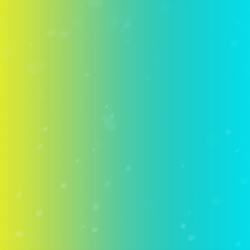Molecular painting laboratory (Bachelor 1) (within the training in 2014)

In the 1st year, students had to define the main concepts of molecular painting by formulating hypotheses to solve the problems they encountered. At the end of a bibliographic work, they presented their results which were evaluated by the 2nd year students. During this time, they participated in the research work carried out by the 2nd year students and under their direction. At the end of this work, the 2nd year students analysed their own work and presented the results to the L1 students who evaluated them. Finally, the 1st year students then proposed projects that they would have to carry out the following year. The selected projects were submitted for opinion to 2nd year students. The 1st year students then wrote their project in the form of a research proposal.
Engineering Project (Bachelor 2)

Students prototype ways to observe and/or protect biodiversity. Through a literature review and a questioning of the possibilities and limitations of DIY methods, they design, build, test prototypes for participatory research. The cohort of 40 students join and contribute to a scientific movement of citizens of the sea, yachtsmen, fishermen, islanders... who want to contribute to the observation and preservation of biodiversity throughout the world, in fruitful interaction with researchers, politicians, associations and companies.
Nanomedicine Projects (Bachelor 2)

This collaborative course proposes the students to achieve
experiments to answer scientific questions: which is the more relevant
formulation of an antibiotic able to kill yeasts at low concentration
and to have low toxicity against mammalian cells? Are there any
physico-chemical characteristics able to explain the results?
All students will be required to work in collaboration with
3 other students in a group. Each group has to prepare, characterise
and evaluate the antifungal activity and the toxicity of one
formulation.
CRI Fellows Project (Bachelor 2)

CRI [Centre de recherches interdisciplinaires, Center for Interdisciplinary Research] research and “Licence Frontières du Vivant (LFDV)” (Frontiers in Life Sciences Bachelor’s degree) are teaming up to co-create a research course for 2nd year (Bachelor 2) students called SCORE: Student COllaborative REsearch. This is an exciting opportunity to connect education and research at CRI in a meaningful way, involve students in research and open the projects to a broader audience.
Reproductibility Project – (Bachelor 2)

This course aims to develop reflexivity about how data are produced, analysed, shared, stored, in a research project. Students work in groups of 3-4, on a dataset proposed by researchers. The course focuses on reliability and reproducibility issues currently faced by the scientific community, analysing underlying practices, guiding the students to develop reliable research practices.
“Life Sciences for SDGs” Project - (Bachelor 3)
During this semester, students will have to address concrete issues, in connection with the Sustainable Development Goals (SDGs), which will be proposed by professional-mentors from the socio-economic or associative world. Put in the position of apprentice researchers, the students will work as a team to design a sustainable and eco-compatible solution in the form of an interdisciplinary scientific research project.
(In September 2022, the Learning Planet Institute starts a Bachelor Degree focused on SDGs called “Bachelor ACT ”)
